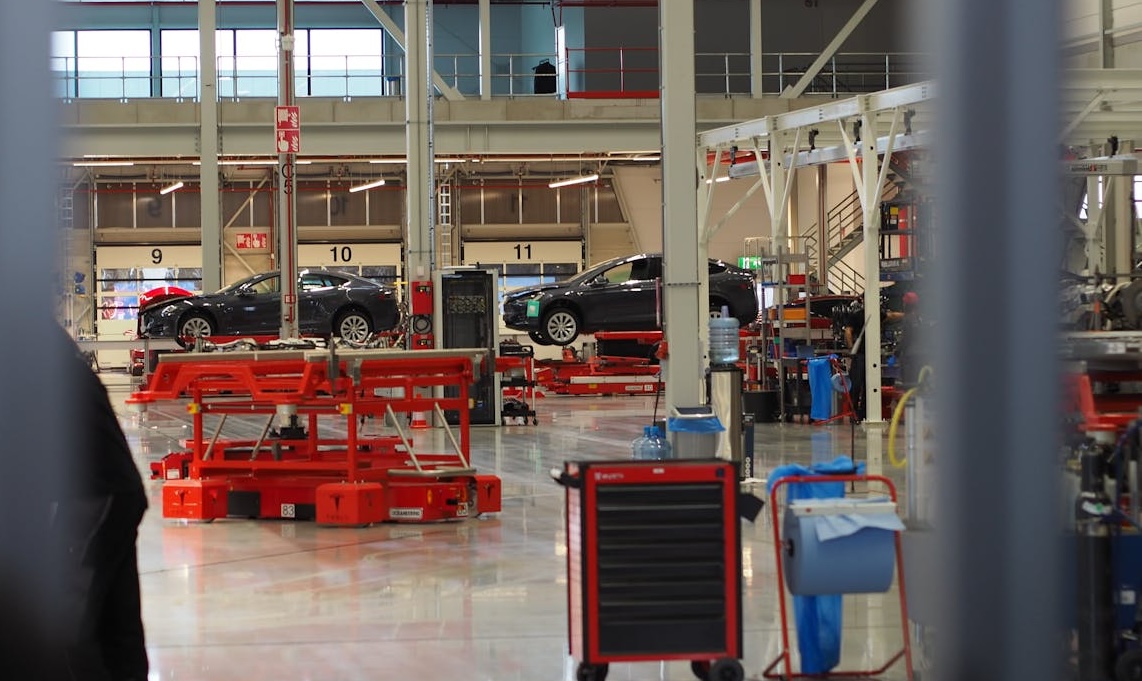Volkswagen, the automotive giant based in Wolfsburg, Germany, is reportedly contemplating the unprecedented step of shuttering two of its domestic factories as part of a strategy to slash billions of euros in costs. This move, aimed at bolstering the company’s transition away from internal combustion engines towards electric vehicles (EVs), was discussed with its employee representatives on Monday. This development marks the first time Volkswagen has considered closing facilities in Germany, highlighting the mounting challenges faced by traditional European car manufacturers in the shift to greener, yet currently less financially rewarding, electric models.
The automotive industry in Europe and the United States is increasingly feeling the heat from Chinese electric vehicle producers, who benefit from lower production costs and higher profit margins. This competitive pressure is evident as several western carmakers, including Ford, General Motors, Mercedes-Benz, and even Volkswagen’s luxury brand Bentley, have had to re-evaluate their electrification timelines. Ford’s recent decision to scrap plans for a new electric SUV and delay the launch of an electric pickup truck, citing Chinese competition as a significant factor, underscores the intensifying global automotive rivalry.
In response to the competitive threat posed by heavily subsidized Chinese imports, the European Union has introduced additional tariffs of between 17.4% and 37.6% on top of an existing 10% import levy. Despite these measures, the cost advantage enjoyed by Chinese manufacturers may still allow them to profitably penetrate the European market.
Volkswagen’s contemplation of factory closures is not just a reflection of the competitive and economic pressures but also signals a dramatic strategic shift for the company, which has a diverse portfolio including Audi, Porsche, Seat, and Škoda. The potential closure of German factories, a move that would be politically sensitive and highly controversial, comes after the carmaker announced in July that it was considering shutting down an Audi plant in Belgium – marking its first proposed factory closure in Europe and globally in four decades.
The German automotive industry’s potential downsizing comes against the backdrop of Germany’s precarious economic condition, which has been teetering on the brink of recession for nearly two years. This economic vulnerability is further exacerbated by political pressures following the success of the far-right Alternative für Deutschland party in a state election, marking a significant political shift and adding to Chancellor Olaf Scholz’s challenges.
Volkswagen’s works council, representing the company’s workforce, has vehemently opposed the proposed closures, criticizing the company’s leadership and calling for a strategic overhaul focusing on product development, process simplification, and leveraging synergies rather than workforce reductions. The union IG Metall also condemned the proposed plan, highlighting the severe implications for jobs and the existential threat it poses to Volkswagen’s core operations.
As Volkswagen grapples with these critical decisions, the outcome will undoubtedly have far-reaching implications for the company’s future direction, its workforce, and the broader automotive industry in Germany and beyond.
News Team





